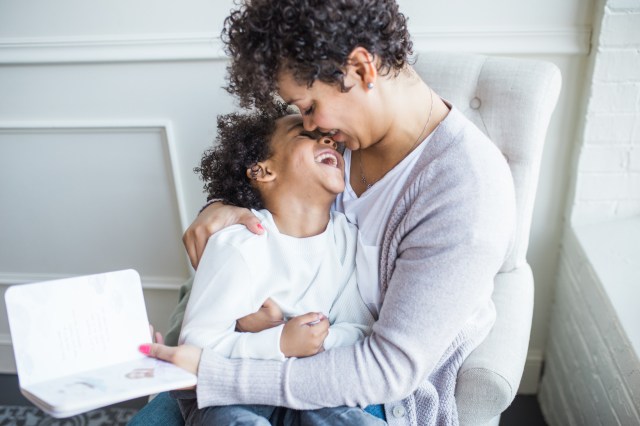
Knowing how to help a young child develop resilience is important to their emotional development, as every child will face some sort of challenge, adversity or change in their lives. We are all facing this currently as we continue to live through the adversity and challenges of COVID-19.
Resilience is one’s ability to adapt and overcome challenges and find strength through adversity. It is sometimes referred to as one’s ability to “bounce back” but I prefer to think of it more as our ability to survive, and even thrive, during a big change. All humans have this amazing capacity for survival through the most difficult and traumatic circumstances.
The following 5 tips can support and help your children build resilience and teach them new skills to get through challenging times:
1. Boundaries + Routines = Safety for young children
Children need routines and boundaries. It helps them feel stable, secure, and safe. As your schedule adapts and changes, make sure to leave plenty of time for free-play, but remember that creating a structure in their environment is something they still need you to do for them (this may be somewhat less-so with teenagers, but way more so with young children). You’ll notice how your children will relax into their days as things become more predictable for them. As children grow older they will learn to do this for themselves (create structure out of change and adapt to new routines). Right now, they need your help. Even little bedtime rituals become even more important during times like this.
2. All Feelings Welcome. Allow space for all the feelings you and your littles are experiencing
Resiliency does not mean “everything is great right now!” (cue fake smile). It means noticing the feelings bubbling up and being honest about it. Those feelings we push down and hide will come out in one way or another so we might as well face them head-on. Facing these feelings, labeling them, and allowing space for them to be expressed is a foundational skill of emotional regulation. Emotional regulation is always a core factor in resilience. If we can help manage our emotions through healthy expression, we can get through more difficult times. Teach this now to your kids, and they will thank you when they are older. This can be done through conversation, play, or stories. Seeing a real need for a tool that helps little ones identify, accept, and cope with their big emotions, we created The Feels for Slumberkins. The book, mini stuffies set, and curriculum provides educators, parents or caregivers easy ways to talk about big feelings. It’s a story about getting to know all your feelings, that allows children to think, explore, and play around with the concepts of feelings and be-friending them all.
3. Vulnerability Is the New Brave. Being vulnerable and acknowledging emotions, even the ‘bad’ ones, is true bravery.
Feeling scared, sad, angry, jealous, hurt, etc. is human. We are not bad for feeling these things, yet these feelings can be quite powerful and sometimes even painful. When we acknowledge these feelings, we show true bravery. Honesty and vulnerability are factors that not only help an individual, but they also strengthen our bonds in relationships. Relationships can grow stronger as we share our feelings with one another. Being vulnerable and brave can help us reach out when we need help (another core factor in resilience). Teach your children they can be honest about their feelings, and they are seen as strong and brave when they share their most difficult emotions.
4. Model What You Teach
It’s honestly the only way children learn. We have to focus on our own wellness, and emotional regulation and honestly with our emotions before we can help our children. Without trying to sound too creepy… they are watching us.
5. Practice Gratitude
Focusing on the good things can really fill our hearts. This is something we can always practice but often hold deeper and more profound meaning during times of stress. There is always something we can be grateful for—even if it’s something we used to take for granted. I think many of us are now finding gratitude for things we may not have in the past. I know, I am now so incredibly grateful for that smile from a kind neighbor on my daily walk, or for those 10 minutes of quiet when my child is playing with their toys. Just make sure you don’t skip over the acknowledgment of difficult emotions, too. Gratitude rings false if you aren’t also acknowledging the difficulty. We humans are complex, and we can tolerate things being terrible and wonderful at the same time. An experience many parents in our community are expressing during this time.
There are many ways to support resilience in children. When we allow a safe space for children to play and express themselves, they will always find ways to tap into their own resiliency and capacity for growth.











